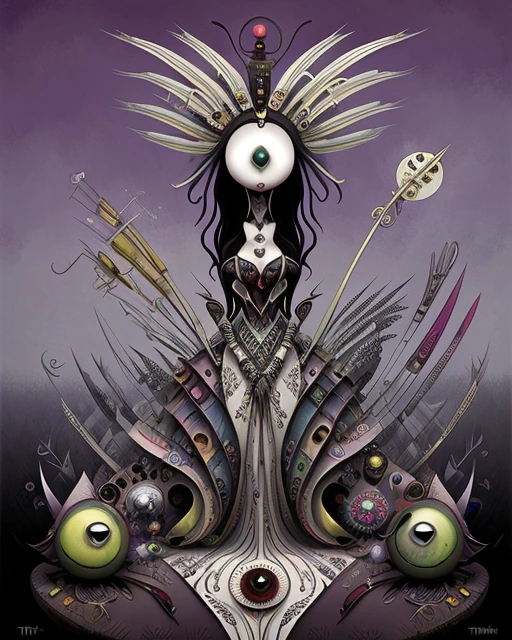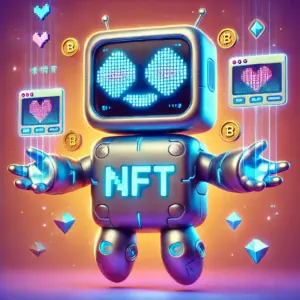The meteoric rise of NFTs (non-fungible tokens) in recent years has undoubtedly captured the attention of the world, transforming the landscape of digital ownership and sparking a heated debate on their inherent value. While some enthusiasts hail NFTs as the future of art and collectibles, others dismiss them as overpriced digital trinkets, questioning their long-term viability.
NFT Basics: Understanding the Digital Asset Craze
At their core, NFTs are unique digital tokens stored on a blockchain, a decentralized ledger technology akin to a public record. Unlike fungible tokens like cryptocurrencies, which are interchangeable, each NFT holds a distinct value, representing ownership of a particular digital asset such as artwork, music, or even virtual land.
The appeal of NFTs lies in their ability to provide verifiable proof of ownership and scarcity for digital assets, which were previously considered intangible and easily replicated. This has opened up new avenues for artists, musicians, and creators to monetize their work and connect directly with their communities.
NFT Market Dynamics: A Tale of Hype and Volatility
The NFT market experienced a period of unprecedented growth in 2021, with sales reaching a staggering $25 billion. This surge drew in a wave of investors, celebrities, and even mainstream brands, fueling speculation and driving up prices for some NFT collections.
However, the market’s exuberance proved unsustainable. As the initial hype subsided, the prices of many NFTs plummeted, leading to widespread concerns about their long-term viability. A 2023 study by dappGambl found that over 95% of NFT collections had lost their value, leaving many investors with worthless assets.
NFT Critics: Voicing Concerns and Questioning Value
The sharp correction in the NFT market has emboldened critics, who argue that NFTs lack intrinsic value and are primarily driven by speculation. They point out that digital assets, unlike physical artwork, can be easily replicated, rendering the concept of scarcity less meaningful.
Moreover, critics question the environmental impact of NFTs, as their creation often entails significant energy consumption. This has led to accusations of environmental unsustainability and concerns about the ethical implications of NFTs.
NFT Advocates: Embracing Innovation and Potential
Despite the criticism, proponents of NFTs maintain their belief in the technology’s potential to revolutionize digital ownership and unlock new possibilities for creative expression and community engagement. They argue that NFTs offer a solution to the challenges of digital scarcity and copyright protection in the digital age.
Moreover, advocates point to the growing adoption of NFTs in various sectors, including gaming, fashion, and even real estate, suggesting a broader application beyond purely collectible items. They envision a future where NFTs become an integral part of the digital economy, enabling new forms of ownership, monetization, and innovation.
NFTs and the Future: Navigating Uncertainty and Potential
The future of NFTs remains uncertain, with both opportunities and challenges on the horizon. The market’s volatility and the environmental concerns surrounding NFTs are significant hurdles that need to be addressed.
However, the potential of NFTs to transform digital ownership and enable new forms of creativity and engagement is undeniable. The key lies in addressing the limitations of the current NFT ecosystem and finding ways to align the technology with sustainable practices and real-world applications.
As the NFT landscape evolves, it is crucial for all stakeholders, including investors, creators, and consumers, to exercise caution and conduct thorough due diligence before engaging with NFTs. A deeper understanding of the technology, its limitations, and its potential applications is essential for making informed decisions and navigating the complexities of this emerging market.
Certainly, here is the continuation of the article:
NFTs and Real-World Applications: Expanding Beyond Collectibles
While the early hype surrounding NFTs centered on their use in collectibles and art, the technology’s potential extends far beyond these domains. NFTs are poised to revolutionize various industries and transform the way we interact with digital assets.
Gaming: Tokenizing In-Game Items and Experiences
NFTs are disrupting the gaming industry by introducing new forms of ownership and monetization. In-game items, such as virtual weapons, skins, and characters, can now be tokenized, allowing players to own and trade them freely. This empowers players to take control of their virtual assets and create new economies within games.
Fashion: Creating Unique and Authentic Digital Wearables
NFTs are empowering fashion brands to create unique and authentic digital wearables. These virtual items can be integrated into gaming platforms, social media, and even virtual reality experiences, allowing users to express their personal style in the digital realm.
Real Estate: Securing Ownership and Enabling Virtual Land Ownership
The concept of virtual land ownership is gaining traction, and NFTs are playing a key role in enabling this new frontier. NFTs can represent ownership of virtual plots of land in metaverses, creating opportunities for investment, development, and community building.
Copyright Protection and Licensing: Streamlining Digital Asset Ownership**
NFTs can revolutionize copyright protection and licensing for digital assets. They can be used to establish clear ownership and attribution for creative works, making it easier to enforce copyright and ensure fair compensation for creators.
Beyond Collectibles: NFTs Driving Innovation in Various Sectors
The potential applications of NFTs extend far beyond the realms of collectibles, art, and gaming. They are being explored in various industries, including:
- Supply Chain Management: Tracking the authenticity and provenance of physical goods.
- Ticketing and Event Management: Creating secure and transferable digital tickets.
- Healthcare: Managing patient records and medical data.
- Identity Management: Securing personal identification and credentials.
Navigating the NFT Landscape: Caution and Due Diligence
As the NFT landscape continues to evolve, it is crucial for stakeholders to exercise caution and conduct thorough due diligence before engaging with NFTs. Here are some key considerations:
- Understand the Technology: Grasp the fundamentals of blockchain technology, NFTs, and their underlying protocols.
- Evaluate Projects Carefully: Research and assess the legitimacy, community engagement, and potential value of NFT projects.
- Diversify Investments: Diversify your NFT portfolio across different projects and categories to minimize risk.
- Avoid FOMO (Fear of Missing Out): Don’t rush into investments based on hype or fear of missing out.
- Do Your Own Research: Conduct independent research beyond marketing materials and promotional claims.
- Consider the Environmental Impact: Evaluate the environmental footprint of NFTs and choose projects that employ energy-efficient blockchains.
In conclusion, the question of whether NFTs are worthless remains open-ended. While there are valid concerns about their current state and the potential for speculative bubbles, the underlying technology and its potential applications cannot be ignored. The future of NFTs will depend on their ability to address the challenges they face and harness their transformative potential to create a more equitable and connected digital world.
Additional Resources
- Dead NFTs: The Evolving Landscape of the NFT Market: https://dappgambl.com/nfts/dead-nfts/
- NFTs Died a Slow, Painful Death in 2023 as Most Are Now Worthless: https://www.theguardian.com/technology/2023/sep/22/nfts-worthless-price






